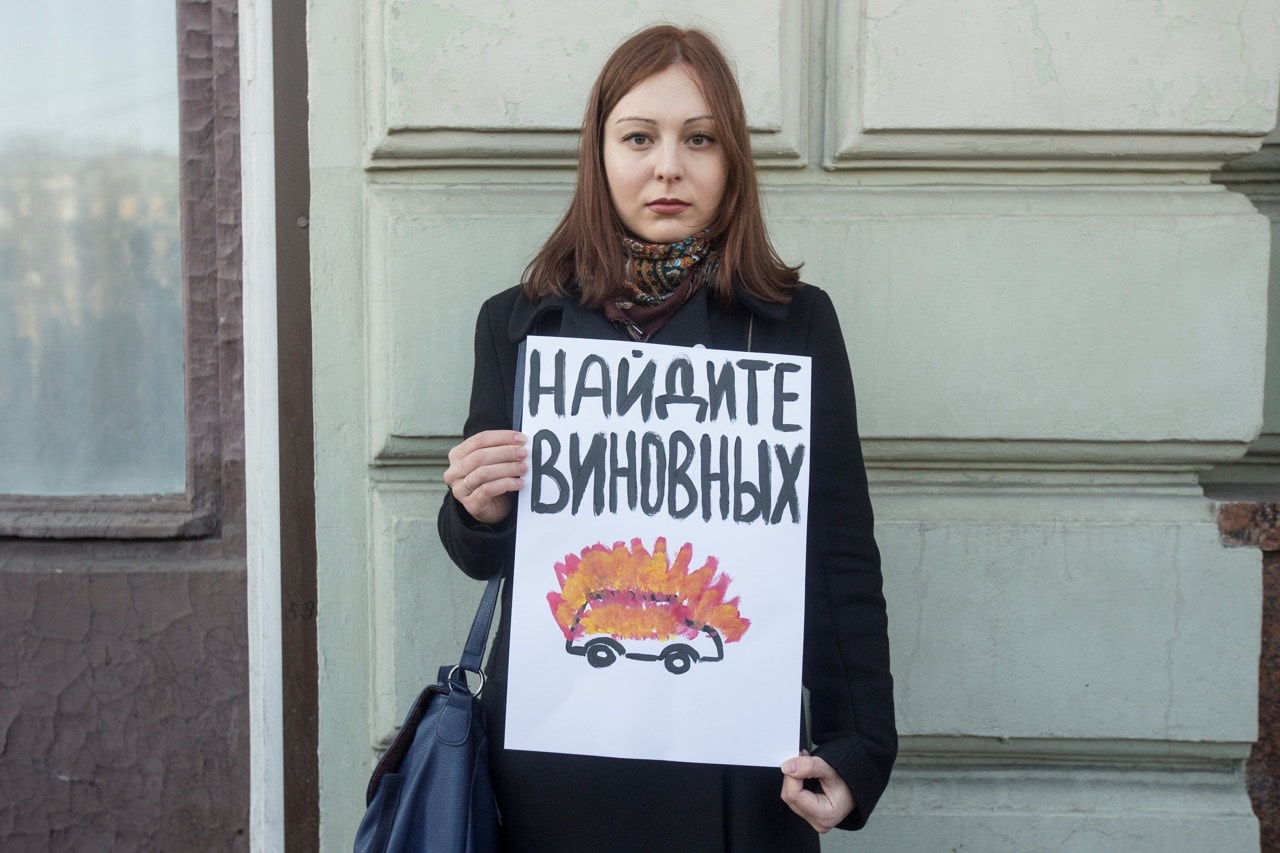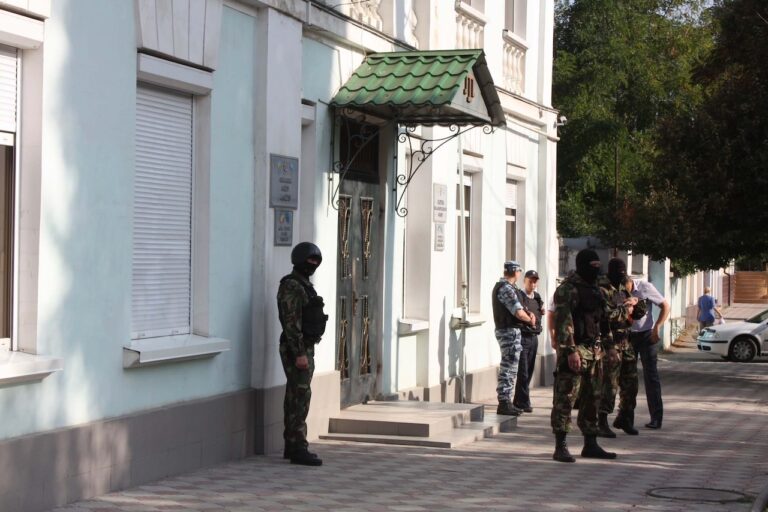In 2016, a group of masked men attacked a minibus carrying journalists and human rights activists; several of the journalists were hospitalised and their vehicle and equipment were destroyed. No suspects have ever been identified.
This statement was originally published on rsf.org on 8 March 2019.
The investigation into a violent attack on a group of journalists and human rights defenders near the border between Ingushetia and Chechnya, in the Russian Caucasus, exactly three years ago, has stalled. Reporters Without Borders (RSF) calls on the authorities to keep their promise to identify those responsible.
Will impunity prevail yet again? No suspect has yet been identified although it was one of the most shocking attacks on journalists in recent years in Russia. The Ingush investigators’ refusal to allow Andrei Sabinin, one of the victims’ lawyers, to have access to the case file was ruled legal by an Ingush court last month.
The attack occurred against a backdrop of intimidation by the Chechen authorities, but no Chechen official has been questioned. Although the investigation’s complete closure was narrowly avoided in 2017, it has ground to a complete halt.
The attack on a minibus carrying journalists and human rights activists on 9 March 2016 caused an outcry in Russia. The victims included Swedish journalist Maria Persson Löfgren, Norwegian journalist Øystein Windstad, and four Russian journalists – Egor Skovoroda, Alexandra Elagina, Anton Prusakov and Mikhail Solunin.
They were on a tour of the Russian Caucasus organized by the Committee to Prevent Torture, a Russian NGO, and had just crossed from Chechnya into the neighbouring Russian republic of Ingushetia when around 20 masked men blocked their way, beat them up and set fire to the minibus.
Several of the journalists had to be treated in a local hospital. Their equipment was destroyed in the fire. A few hours after the attack, masked gunmen ransacked the Committee to Prevent Torture’s local office in Ingushetia.
In response to the ensuing outcry, President Vladimir Putin’s spokesman, Dmitry Peskov, described the attack on the minibus as “intolerable” and said everything would be done to solve it. “We count on the security forces to take the most active measures to look for and find the perpetrators,” he said. But Chechen presidential spokesman Alvi Karimov criticized RSF for emphasizing the climate of impunity and intimidation prevailing in the region.
“Allowing such a shocking attack to go unpunished would send another disastrous signal to journalists investigating human rights violations in the Russian Caucasus,” said Johann Bihr, the head of RSF’s Eastern Europe and Central Asia desk.
“The federal and local authorities have a duty to honour the promises made at the highest government level and Russia’s international obligations with regard to the safety of journalists.”
RSF points out that governments are required by many UN resolutions to conduct “impartial, speedy, thorough, independent and effective” investigations into acts of violence against journalists.
Russia is ranked 148th out of 180 countries in RSF’s 2018 World Press Freedom Index. The situation is worsening steadily in Chechnya, which is a news and information “black hole” within Russia.



